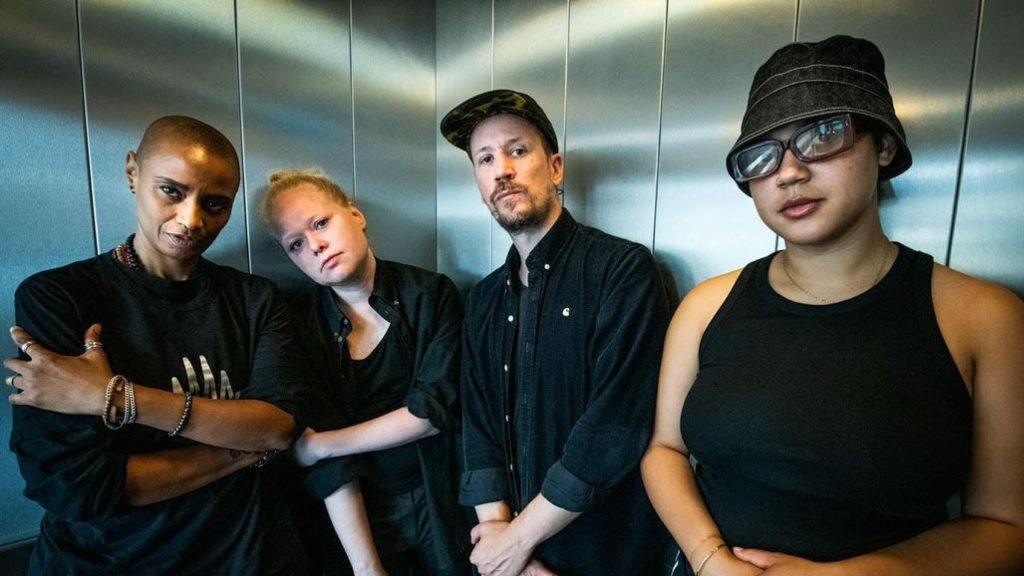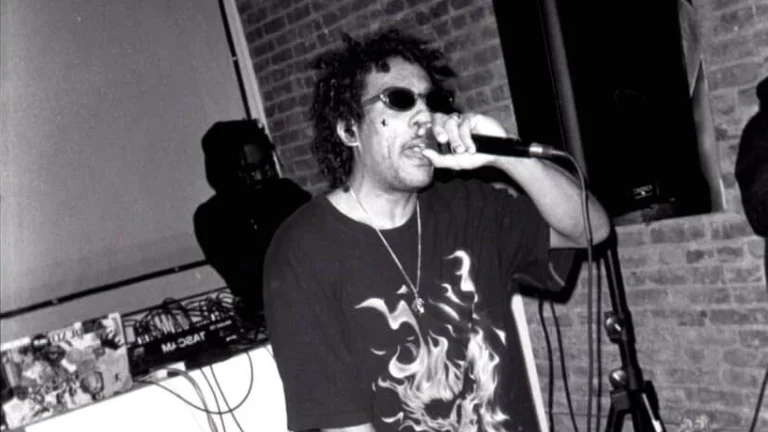Today’s indie hip hop and general black music labels such as New York’s PTP Visions, Providence’s Strange Famous, or even Brooklyn’s Backwoodz Studioz feel like they have a specific function in mind. That function is to chronicle the highs and lows of life at the bottom of the social food chain. Remember back when hip hop was originally named “The Black CNN”? Labels such as anticon., Def Mix and Fake Four feel like they are pushing past the idea of it only being a black thing, but a channel for all those outcasted from much more major machines. Everywhere you turn there is a middle finger towards the destructive establishment, a cry for those to recognize their humanity while not letting such be erased for material gain, and a fist high celebrating the ones who managed to stand after the battles are won. Yet, if this is their function as a label, one must think they should add a jazz band to their rosters. (Fake Four has this, but the point remains.)
You see before jazz was reduced to a genre played in the parties and mansions of those looking for background music, it was a genre made to shout, to cry, to cheer. Jazz was its own musical documentation of the world we live in. This is how we got people such as free jazz architect Ornette Coleman, the futurist, prophet, and musical innovator Sun Ra, along with new artists like free jazz poet/bandleaders Moor Mother and Angel Bat Dawid. If you have ever imagined what it would be like if Backwoodz Studioz’s breakout billy woods flowed over chaotic free jazz, you’ll love ØKSE’s self-titled debut.
ØKSE, Danish for the word “axe,” is a five-member supergroup—drummer Savannah Harris, saxophonist Mette Rasmussen, electronic artist Val Jeanty (known individually as Val-Inc), and multi-instrumentalist Peter Eldh—who managed to blend all tendencies to make a brand new type of experimental jazz. One that blends hip-hop, jazz, and electronica so well, that it can be hard to separate. A good example of this is the looping “Fragrance (some days doesn’t have fragrance),” a song that propels every member in sync with each other, and a segment of the song—the switch at the 1:51 mark, specifically—where the band plays over what sounds like a skipping record before switching back into band mode around the 3:33 mark.
ØKSE boasts only four rappers, each getting a single track on an eight-song project. “Skopje” featuring Backwoodz Studioz’ other resident spitter E L U C I D jettisons you into a bleak rabbit hole. “Cut out the lights / we heal in the dark,” instructed the rapper. E L U C I D’s voice shows frustrated restraint compared to the chaotic avalanche of DJ scratches, Rasmussen’s wild saxophone bleats, and Harris’ complicated rhythms. And those only set the scene for the dizzying shuffle of the tense “Three-Headed Axe,” which follows.
Where billy woods would usually lord over a beat with a bold frustrated tone, his feature better matches the track’s frantic nature reminiscent of drum-and-bass producer Roni Size through equally manic spitting. On “Kdance92,” New Orleans spitter Cavalier briefly pops in with an abstract verse comparing Biblical members with hood characters—jailbirds, “three wise crackheads” and the wardens, specifically. But where other compositions have a wildness to them, “The Dive” is a slow, crawling beat for Brooklyn’s avant-rapper/producer maassai to spit verses suggesting a sense of both personal growth and the growing apart of a relationship.
As tempting as it may be to call ØKSE a live jazz rap album, doing so would put too much focus on the features and take away the spotlight of the band’s own talents. This blending of hip-hop, jazz, and Haitian electronica does much more than become a backdrop for the rappers mentioned—it stands tall as a creative jazz unit. When listening to ØKSE, it would behoove you to look at the rappers as characters, and the band as the scores to an imaginary film, a world in which they share amongst themselves and anyone who shares an interest in joining.





